Most of my reading this year was an attempt to better understand the world we’re living in right now. Across politics, science, technology, economics, and ecology, rapid disruption seems to be the new norm. In the midst of all that dizzying change, I looked for new perspectives in history, science, nature, and philosophy.
The books that made my list below are the ones that affected me the most. Several of them getting a second or third readthrough. All of them providing valuable insights into the nature of the human condition and why things are the way they are.
Note: the vast majority of the books I’m featuring here were not released in 2023, that’s just when I happened to read them.
Fiction
I didn’t read much new fiction this year, but there was a unifying theme connecting those that I did: really long timescales. This year I found myself drawn to “big picture” narratives in a powerful way. By broadening my perspective to that of the lifespan of cities, trees, and civilizations I gained a new appreciation for the sweeping story of humanity and our place in the chain of life.
1. The Overstory by Richard Powers
The Overstory by Richard Powers is a compelling narrative that intertwines the lives of nine American characters, each with their own unique connection to trees.
The novel delves into the profound impact of forests on these individuals, leading them to address environmental issues, specifically the destruction of forests. The diverse cast includes a tree researcher, an ecowarrior, and an artist among others. Each character’s story branching out like the very subjects they are connected to.
Reading this beautiful environmental fable changed the way I see trees and the interconnected nature of life on Earth. It’s brought a new sense of awe into my understanding of the natural world.
2. New York by Edward Rutherford
New York: The Novel by Edward Rutherfurd is an expansive historical novel that takes readers on a journey through four centuries of New York City’s rich history. Through the lens of several families, the narrative explores their struggles, triumphs, and search for freedom and opportunity in the evolving cityscape.
The novel is praised for its meticulous research and engrossing saga that seamlessly weaves personal stories with grand historical events. From battles and romance to family dynamics, Rutherfurd captures the essence and spirit of the city, making it a vibrant character in its own right.
I found myself captivated by facts and events not typically highlighted in America’s history about itself, made all the more memorable when grounded by the individual experiences of characters I came to care about.
3. Russka by Edward Rutherford
Russka: The Novel of Russia by Edward Rutherfurd is a sweeping historical novel that spans 1,800 years of Russia’s rich and complex history. The narrative follows the lives of two families across centuries, intertwining their personal stories with significant historical events.
Despite its length, the book maintains an engaging pace, offering an intimate look into the people, politics, and culture that have shaped Russia. Rutherfurd’s intricate storytelling brings to life the epic saga of a great civilization, transforming it into a human story of courage, action, and resilience.
As an American I’m not often exposed to nuanced depictions of Russians and Russia, for obvious reasons. Popular culture is all too eager to play up the adversarial relationship between Russia and the western world, turning it and its people into simple brutes full of vodka and aggression. This book paints a very different picture.
4. The Three-Body Problem Series by Cixin Liu
The Three-Body Problem by Cixin Liu is a mind-bending science fiction novel that explores the consequences of mankind making contact with an advanced alien civilization.
The narrative begins during the Cultural Revolution of the 1960s in China and spans hundreds of years across various timelines, focusing on the existential crises and moral dilemmas that arise from first contact. The novel delves deep into the philosophical and scientific implications of such contact, painting a complex picture of humanity’s struggle for survival.
The Three-Body Problem is the first book in the trilogy, Remembrance of Earth’s Past. I found these books so interesting that within a week of finishing them I started over from the beginning.
(Warning: this book and series contain a lot of sexism. At first I thought it was perhaps something cultural I was misunderstanding or maybe a translation issue, but this criticism is pretty wide-spread among readers. It’s unfortunate because the scientific concepts explored are amazing, but for some readers the sexism expressed by the author may be too off-putting for them to enjoy the rest of what these novels have to offer.)
Non-Fiction
Most of my reading this year was non-fiction; history, in particular. I’m not sure why, but I suddenly found myself wanting to have a clear mental map of humanity’s past starting from as far back as possible. I’ve become deeply fascinated by how events in the past shape the world we live in today, and I find that understanding history has helped me develop a stronger sense of self-awareness in the present.
5. The Dawn of Everything by David Graeber and David Wengrow
The Dawn of Everything: A New History of Humanity by David Graeber and David Wengrow is a revolutionary exploration of human history that challenges traditional narratives about the evolution of societies.
The authors critically examine entrenched assumptions, focusing on the origins of inequality and the development of human societies. They argue against the conventional account of social history and provide an alternative perspective, suggesting that diverse social structures and forms of freedom were present in early human societies.
Until reading this book I’d never been able to imagine human pre-history with such depth and detail. Now, I can’t stop! In part because it’s so interesting and in part because it hints at refreshing possibilities for our future.
6. The History of the Ancient World by Susan Wise Bauer
The History of the Ancient World: From the Earliest Accounts to the Fall of Rome by Susan Wise Bauer is an expansive book that delves into the records and stories of ancient civilizations. It provides a comprehensive view of recorded human history, from the earliest civilizations to the fall of Rome.
Bauer’s engaging writing style brings to life the cultures that have shaped our world, focusing on the common threads and unique aspects of each. The book combines broad historical scope with vivid attention to individual lives, making abstract assertions about human history that are tangible and relatable.
This book is not just a chronicle of past events but also a relatable narrative that makes ancient history come alive and speak into the present. This is another book I read multiple times this year.
7. The History of the Medieval World by Susan Wise Bauer
The History of the Medieval World: From the Conversion of Constantine to the First Crusade by Susan Wise Bauer is an wide-ranging, detailed exploration of the Middle Ages.
It begins with the decline of the Western Roman Empire, then weaves a captivating narrative that covers politics, religion, conquests, and castles. The author masterfully presents the period where religion became a strategic tool for kings worldwide. The narrative links the significant conflicts of Europe to the monumental power struggles in India and Asia, offering readers a front-row seat to the dramatic events and transformations of the Middle Ages.
This book, when combined with the two above, helped me establish a “big picture” of human pre-history up through the Middle Ages. In 2024 I look forward to spending more time exploring the Renaissance and modern historical eras with this helpful backdrop in place.
8. Powers and Thrones by Dan Jones
Powers and Thrones: A New History of the Middle Ages by Dan Jones is a comprehensive exploration of the Middle Ages, offering fresh insights into this critical period in history.
The book begins with the fall of Rome and concludes with the Protestant Reformation, covering key events, wars, and cultural shifts in between. Jones’ narrative skillfully intertwines various aspects of history, including armies, monks, scholars, rulers, and entrepreneurs. It demonstrates how the Middle Ages were a complex and interconnected period that shaped the modern world.
Initially, I picked this book up simply to get a different take on this important period of history. After reading it, I not only felt more informed but I’d become a fan of Dan Jones’ style and decided to pick up another of his books.
9. The Wars of the Roses by Dan Jones
The Wars of the Roses: The Fall of the Plantagenets and the Rise of the Tudors by Dan Jones is a meticulously researched book that presents an engaging history of a pivotal period in English history.
Jones’ masterful storytelling brings to life the uncertainties of the era, complete with vivid descriptions of significant battles and a well-drawn cast of characters. It is the culmination of Jones’ epic history of medieval England, revealing the ruthless power struggles that forever shaped the British crown.
Having enjoyed Dan Jones’ Powers and Thrones, I read this book to take a closer look at one part of the world within the Middle Ages. It did not disappoint!
10. Napoleon by Andrew Roberts
Napoleon: A Life by Andrew Roberts is a comprehensive biography of Napoleon Bonaparte. It presents a balanced view of this influential figure, exploring both his strengths and flaws as a soldier, statesman, and visionary.
Drawing on new documents and Roberts’ extensive travels to Napoleon’s battle sites, the biography provides in-depth insights into Napoleon’s life and military strategies. The author also integrates Napoleon’s personal letters into the narrative, offering readers a unique perspective on the emperor’s thoughts and motivations.
This definitive work captures the essence of Napoleon’s impact on France and the world, making it an essential read for history enthusiasts. Speaking for myself, this book helped turn a caricature of a man into a real person who’s life and legacy still resonate today.
11. American Prometheus by Kai Bird and Martin J. Sherwin
American Prometheus: The Triumph and Tragedy of J. Robert Oppenheimer by Kai Bird and Martin J. Sherwin is a comprehensive biography of J. Robert Oppenheimer, an American physicist and central figure in the development of the atomic bomb.
The book delves into Oppenheimer’s personal struggles, his contributions to science, and the ethical dilemmas he faced as the “father of the atomic bomb.” It provides a deep examination of his life and times, from his early years to his role in the Manhattan Project.
Before reading this book all I knew about Oppenheimer was that he worked on the atomic bomb and said, “For I am become death, destroyer of worlds” when the first bomb was successfully tested. After reading it, I felt like I not only knew him but that I understood his times and my own much better.
12. The Making of the Atomic Bomb by Richard Rhodes
The Making of the Atomic Bomb by Richard Rhodes is a comprehensive and detailed account of the creation of one of the most destructive weapons in human history.
The book takes readers on a journey from the discovery of nuclear fission in the 19th century, through the political and scientific developments that led to the Manhattan Project during World War II. Rhodes meticulously presents the story of the atomic bomb’s development, offering deep insights into the lives of those involved in its creation.
I paired this book with American Prometheus to get a well-rounded account of the creation of the atomic bomb and the people involved. I was struck by the bizarre combination of genius, naivety, terror, and idealism that drove most of these people. As well as the foresight of others who saw the horror of these weapons well before they were realized.
13. How the World Really Works by Vaclav Smil
How the World Really Works: The Science Behind How We Live by Vaclav Smil is an exploration of the science and technology that underpin modern life.
This book delves into seven key areas that govern our world, including energy, food, and material production. Through his extensive research and interdisciplinary approach, Smil aims to dispel common misconceptions and provide a clearer understanding of how our world functions. The book is lauded for its factual accuracy and for challenging both extreme and mainstream views on these topics.
Coming from a religious upbringing I have come to realize that there are massive gaps in my practical understanding of how the world really functions. Books like this one have helped me better appreciate the complexities, limitations, and challenges that actually govern our lives.
14. Energy and Civilization by Vaclav Smil
Energy and Civilization: A History by Vaclav Smil is an extensive exploration of how energy has influenced societal development from prehistoric times to the present day.
The book provides a detailed account of how energy transitions, from foraging societies to our current fossil fuel-dependent civilization, have shaped our world. Smil presents an in-depth analysis of how energy production and use have driven technological advancements, economic growth, and social transformation.
After reading this book I have a better understanding of how dependent we are on our current sources of energy and how difficult it is to transition from one primary source to another, especially on a global scale. I like to think it’s helped me adopt a more mature and realistic idea of our current situation.
15. The Dream Machine by M. Mitchell Waldrop
The Dream Machine by M. Mitchell Waldrop is a comprehensive narrative that delves into the history of computing, focusing on the pivotal role of J.C.R. Licklider.
Licklider, an MIT psychologist, envisioned a “human-computer symbiosis,” which laid the foundation for personal computing and the internet as we know it today. The book offers a captivating account of the trials, triumphs, and transformative ideas that have driven the evolution of modern technology.
If you’re like me, you’ve probably never heard of J.C.R. Licklider. His story is not that of a scrappy kid in a garage who becomes a tech billionaire, but none of those stories would be possible with out him and his extraordinary imagination.
16. Sandworm by Andy Greenberg
Sandworm: A New Era of Cyberwar and the Hunt for the Kremlin’s Most Dangerous Hackers by Andy Greenberg is a gripping account of the most devastating cyberattack in history.
The book follows the international pursuit to identify and track the elite Russian agents responsible. Greenberg’s narrative takes the reader from war-torn Ukraine to shadowy online chatrooms, and even to the halls of the United Nations. The book reads like a detective story, but it also serves as a chilling warning about the future of global warfare in the digital age.
This is one a few books I’ve read since the outbreak of war between Russia and Ukraine in an attempt to understand the dynamics of modern warfare. It’s a frightening exploration of what’s possible in cyberwarfare and the glaring vulnerabilities of modern society.
17. Behave by Robert M. Sapolsky
Behave: The Biology of Humans at Our Best and Worst by Robert M. Sapolsky is a captivating exploration of human behavior from a biological perspective.
It delves into the factors that influence our actions, ranging from immediate brain responses to long-term social causes. The book offers a comprehensive tour of disciplines such as neuroscience, psychology, and sociology to explain why humans behave the way they do.
I found this book endlessly engrossing and despite its complicated nature, relatively easy to understand. Sapolsky’s humor, intellect, and writing style make him an inimitable teacher.
18. Taking America Back for God by Andrew L. Whitehead and Samuel L. Perry
Taking America Back for God: Christian Nationalism in the United States by Andrew L. Whitehead and Samuel L. Perry is a comprehensive empirical study of Christian nationalism in America.
This award-winning book uses data collected over several decades, along with interviews from Americans from all walks of life, to provide an in-depth analysis of the influence of Christian nationalism on American society.
I picked this book up because, like many right now, I wanted to better understand the forces behind the extremism in American religion and politics. Not only did this book deliver on that, but as someone who grew up as an evangelical Christian, it gave me new perspective on my own life.
19. Strange Rites by Tara Isabella Burton
Strange Rites: New Religions for a Godless World by Tara Isabella Burton is a compelling exploration of the evolving religious landscape in America.
The book offers an in-depth look into the emergence of new faith systems and spiritual practices, delving into the rise of the occult, cults, and alternative spiritualities in a supposedly secular world. Burton provides a unique perspective on how traditional religion is being replaced or reimagined in contemporary society.
I read this book because as a humanist celebrant and community builder, I’m inherently interested in understanding how other people make meaning and find belonging. The insights Burton provides here helped me see how little the underpinnings of people change, even as society changes dramatically around them.
20. Staying Sane in a Crazy World by Sherwin T. Wine
Staying Sane in a Crazy World by Rabbi Sherwin T. Wine is a thought-provoking guide to maintaining sanity and rationality in a chaotic world.
Wine, the founder of Humanistic Judaism, provides ten steps towards achieving a balanced outlook on life, addressing fundamental questions about happiness, ethics, and human dignity. This self-help book offers a fresh perspective on personal resilience and coping mechanisms.
I read this book in direct response to a difficult few years. Starting with the Covid pandemic, followed by a degenerative eye disease, and the onset of deep, persistent depression I’ve been searching for a way to come to terms with the unavoidable realities of my life. I can’t say that this book possesses all the answers or that I agree with all of Wine’s perspectives. However, it did help.
Summing Up: My Year in Books
So how about it, did all of this reading bring about a new measure of peace and understanding? Do I feel more equipped to live in today’s world? Did I gain a deeper appreciation for the human condition and the inner lives of myself and others? Yeah, I think so. That’s the amazing thing about books and why I can’t put them down.
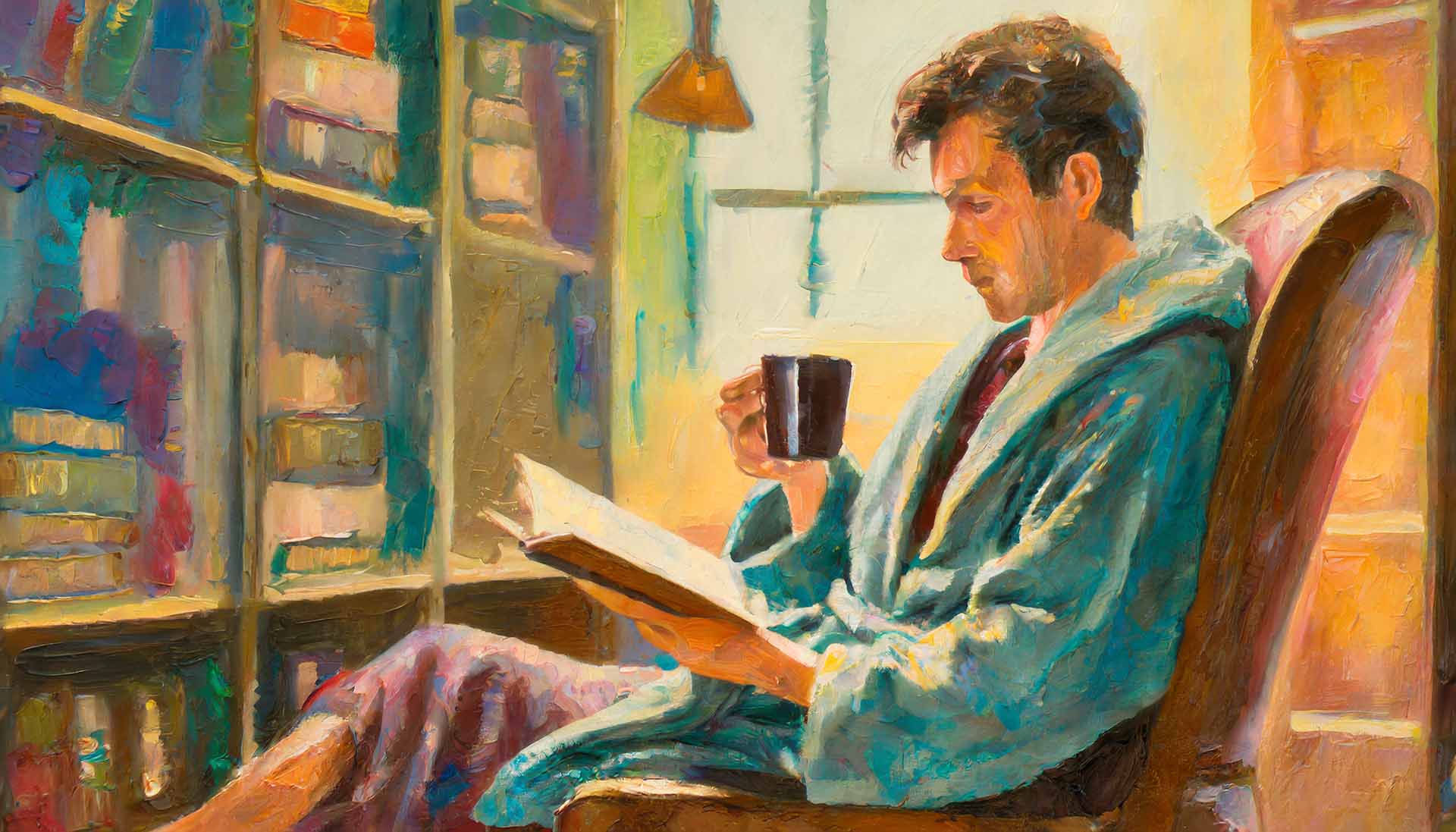
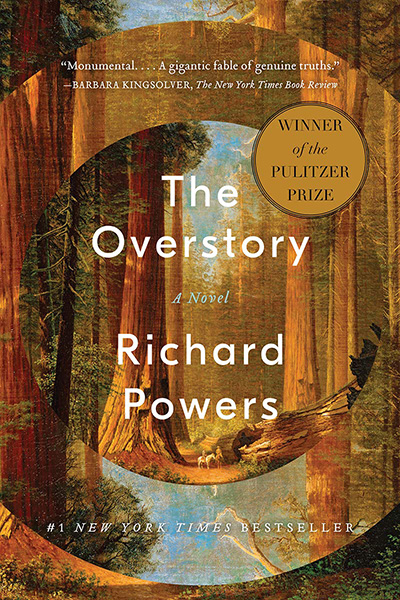
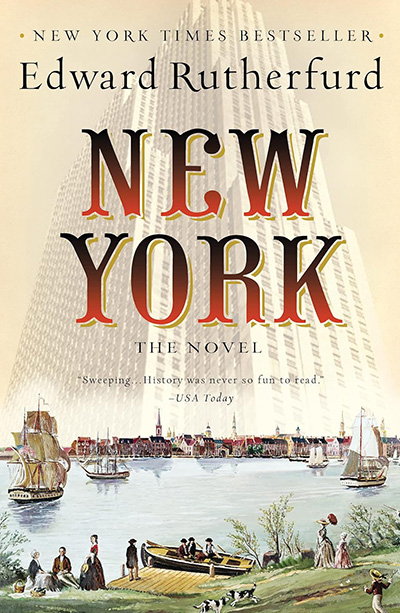
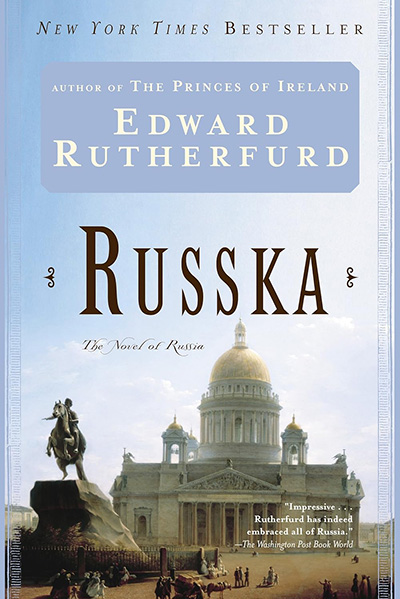
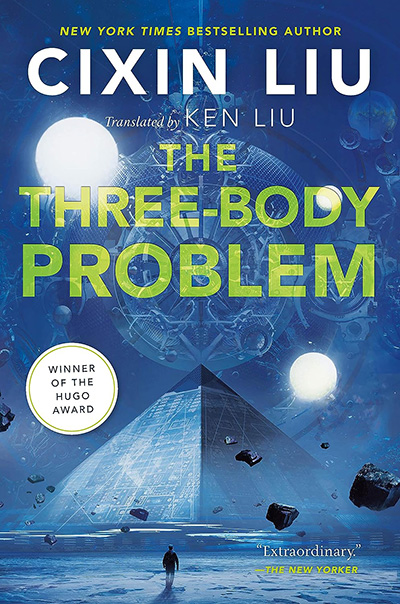
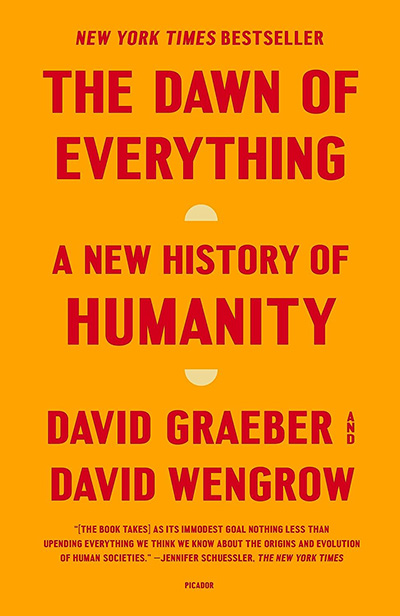
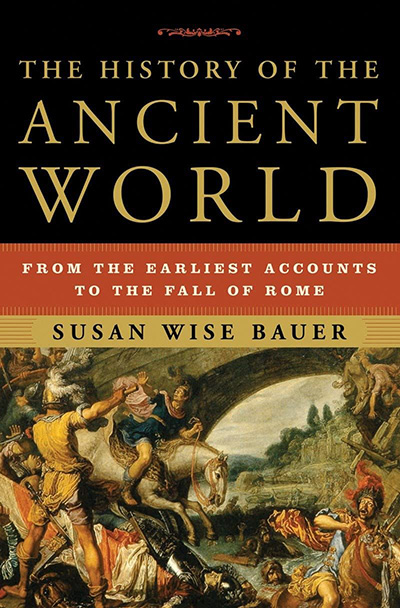
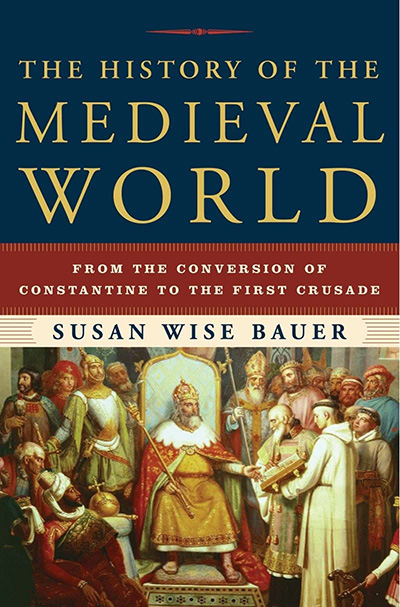
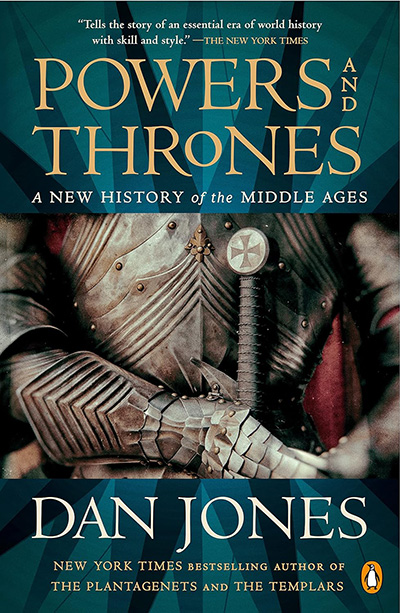
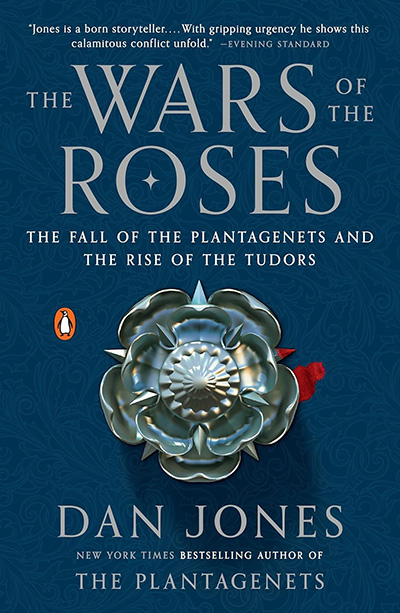
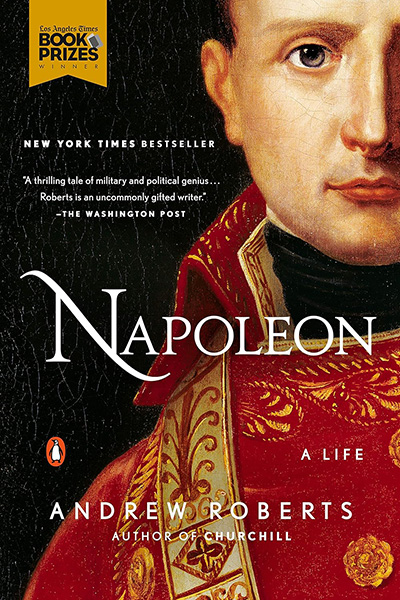
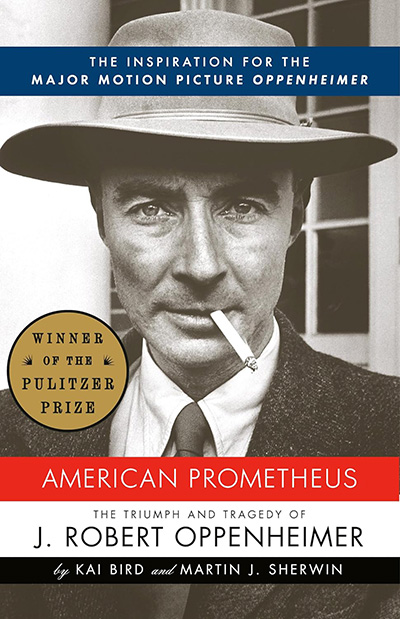
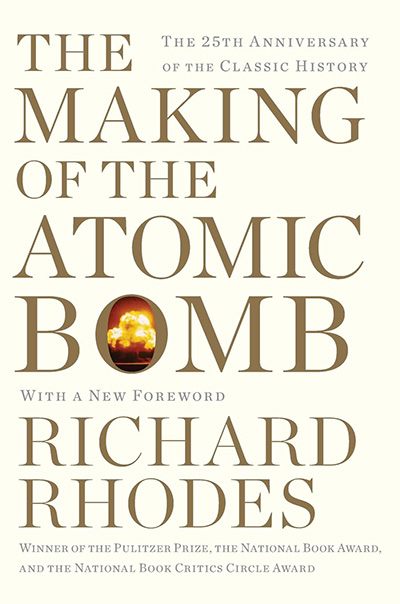
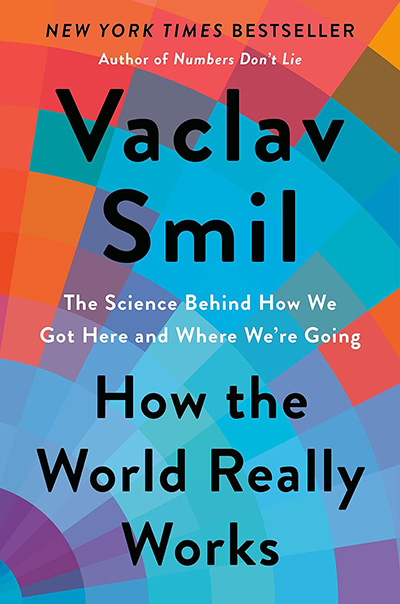
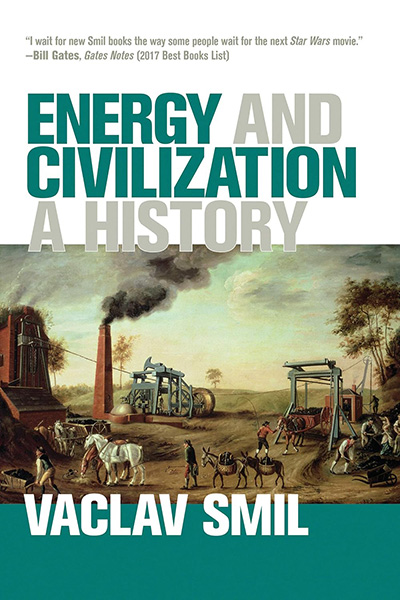
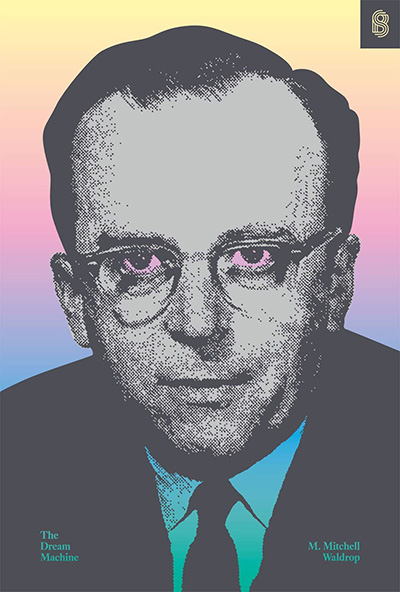
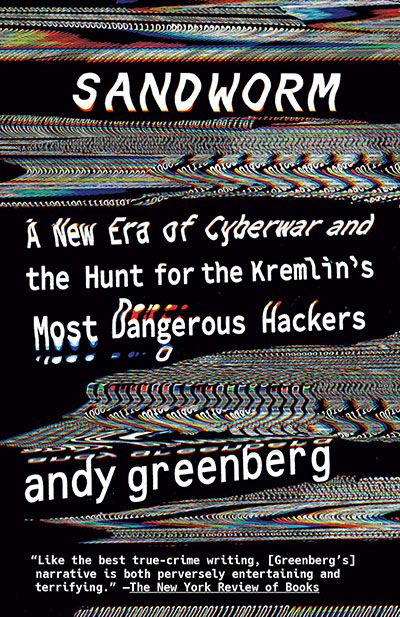
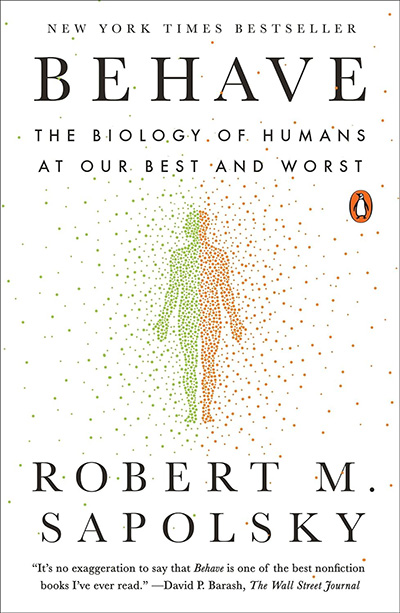
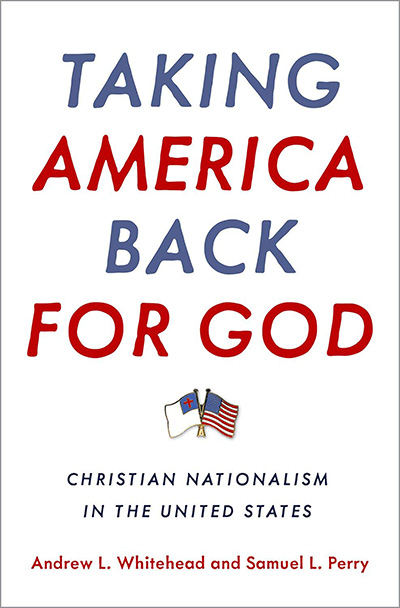
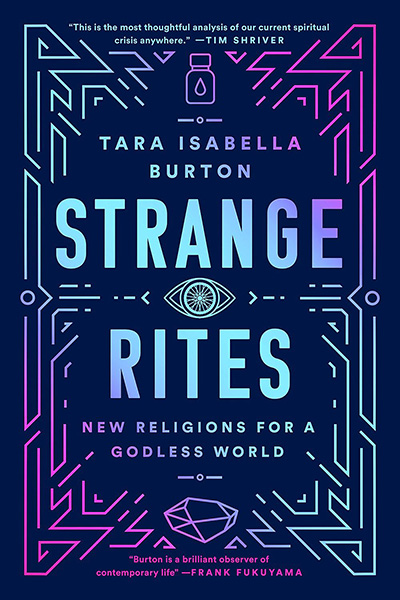
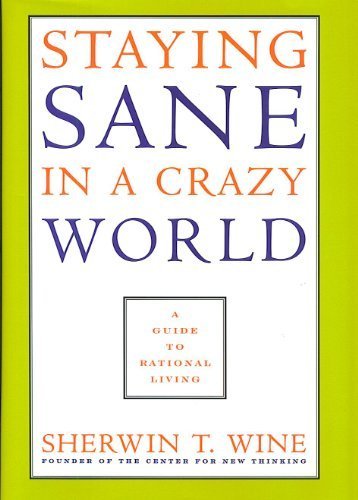
0 Comments